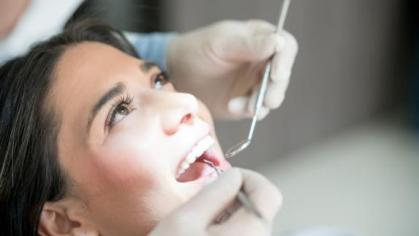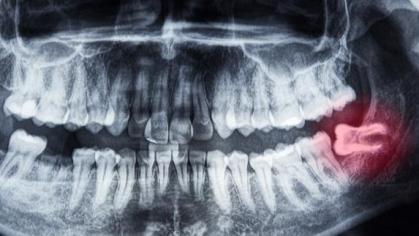The Importance of Early Cavity Detection
Growing up, you were probably told by your parents and dentist to brush your teeth regularly in order to avoid cavities. Even if you followed this advice every day, cavities can still occur. In fact, most of us will have at least a cavity or two at some point, and if left untreated, they can create harmful medical complications that seriously impact your health. That’s why it’s important to schedule regular dental checkups so any cavities can be caught early. Here, Rutgers Health University Dental Associates explains why the best cavity treatment is early detection.
What is a Cavity?
Cavities are a form of tooth decay that occurs when bacteria is able to find its way into openings in the enamel of your teeth. One of the main causes of cavities is plaque, a clear film that covers your teeth. Plaque forms when sugars and starches from the food you eat are not cleaned off your teeth in a regular manner. Over time, this plaque will harden to form tartar, which makes it harder for the bacteria that causes cavities to be reached. Plaque contains acids that create the tiny holes in the enamel on your teeth through which bacteria enters.
Behind the enamel is a layer made of dentin, which is softer and connected to the nerves of your teeth, causing sensitivity. Soon, the bacteria makes its way to the innermost layer of the tooth that contains the nerves and blood vessels. Once that level is breached, the nerves become swollen, putting pressure on your teeth and causing pain. Stopping the bacteria before it reaches these layers past your enamel is essential to keep your mouth free of pain and your teeth in good health.
Complications Caused By Cavities
While having a cavity causes pain and sensitivity, there are also some serious issues that could further develop and put your health at risk. One of the main complications stemming from an untreated cavity is a tooth abscess. This occurs when a bacterial infection creates a pocket of pus inside the tooth that causes severe pain and sensitivity when chewing. This infection could eventually spread to your head and neck, creating even more problems that can eventually prove life-threatening.
Additionally, teeth may have to be taken out entirely if cavities are neglected, causing the need for dentures or other replacements. You may also experience nutrition problems if the pain in your teeth is causing you to eat less often. The good news is that all of this is easily avoidable by maintaining some good dental habits.
Preventing Cavities
Keeping cavities out of your mouth does not require much effort on a day-to-day basis. Just keep these tips in mind:
- Brush your teeth: Of course this is the most obvious answer, but also one of the most important. Make sure to keep your teeth clear of plaque by brushing after you eat.
- Avoid sugary snacks: Plaque grows from sugar remaining on your teeth, so cutting down on how much you ingest will limit how much plaque can grow.
- Visit the dentist: Scheduling regular dental checkups every six months will allow your teeth to be thoroughly cleaned and inspected so cavities can be caught early.
Schedule Your Visit
At Rutgers Health University Dental Associates, we will ensure that any problems relating to your dental health are taken care of quickly and effectively. Don’t wait until cavities cause serious health risks – act now. Contact us to schedule an appointment at one of our two locations in New Brunswick and Newark today.



